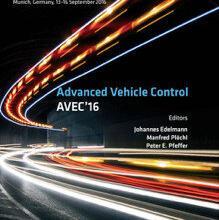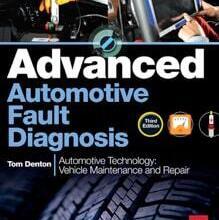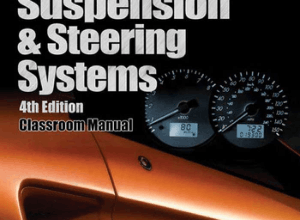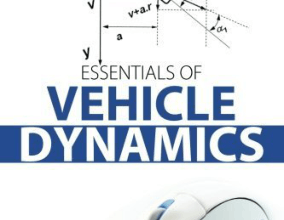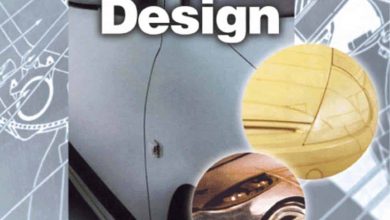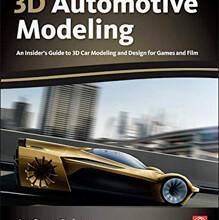Volkswagen Family Engines EA211 And EA888
Download: Volkswagen Family Engines EA211 And EA888
Engine EA211 |
|
| Manufacturer | Volkswagen Group |
| Production | 2011- Present |
| Displacement | 1.0 L (999 cc) 1.2 L (1,198 cc) 1.4 L (1,395 cc) 1.5 L (1,498 cc) EVO 1.6 L (1,598 cc) |
| Cylinder Bore | 71 mm (2.8 in) 74.5 mm (2.93 in) 76.5 mm (3.01 in) |
| Piston Stroke | 75.6 mm (2.98 in) 76.4 mm (3.01 in) 80 mm (3.1 in) 85.9 mm (3.38 in) 86.9 mm (3.42 in) |
| Power Output | 44–110 kW (60–150 PS; 59–148 bhp) |
| Predecessor | EA111 |
| Successor | EA211 EVO |
| Also Called | Modular Gasoline Engine Kit |
| Fuel | Gasoline, Inline-Three & Inline Four Petrol Engines, Variable Valve Timing, Four Stroke, Dual Overhead Camshaft |
| Identification |
|
|
|
|
Cast aluminum alloy; four main bearings, die-forged steel crankshaft |
| Cylinder head & valvetrain | Cast aluminum alloy; four valves per cylinder, 12 valves total, double overhead camshaft (DOHC) |
| Aspiration | Natural and turbocharged |
| Fuel system | Multi-point electronic indirect fuel injection with three intake manifold-sited fuel injectors |
| DIN-rated motive power & torque outputs | 44 kW (60 PS; 59 bhp) at 5,000–6,000 rpm; 95 N⋅m (70 lb⋅ft) at 3,000–4,300 rpm (CHYA)55 kW (75 PS; 74 bhp) at 6,200 rpm; 95 N⋅m (70 lb⋅ft) at 3,000–4,300 rpm (CHYB)62 kW (84 PS; 83 bhp) at 6,350 rpm; 102 N⋅m (75 lb⋅ft) at 3,000 rpm with Ethanol (CSEB)70 kW (95 PS; 94 bhp) at 5,000–5,500 rpm; 160 N⋅m (118 lb⋅ft) at 1500–3,500 rpm (CHZB)81 kW (110 PS; 109 bhp) at 5,000 – 5,500 rpm; 175 N⋅m (129 lb⋅ft) at 1,750-4,000 rpm (DSHA)85 kW (116 PS; 114 bhp) at 5,000–5,500 rpm; 200 N⋅m (148 lb⋅ft) at 2000–3,500 rpm (CHZD)94 kW (128 PS; 126 bhp) at 5,500 rpm; 200 N⋅m (148 lb⋅ft) at 2,000-3,500 rpm with Ethanol (DHSB) |
| Applications |
|
EA888 | |
| Manufacturer | Volkswagen Group |
| Production | 2008- Present |
| Cylinder Block Material | Cast Iron |
| Cylinder Head Material | Aluminum |
| Fue Type | Gasoline |
| Fuel System | Direct injection; Direct injection + multi-point injection for Gen 3 |
| Configuration | Inline |
| Number of cylinders | 4 |
| Valves per cylinder | 4 |
| Valvetrain layout | DOHC |
| Bore, mm | 82.5 mm (3.25 in) |
| Stroke, mm | 92.8 mm (3.65 in) |
| Displacement, cc | 1,984 cc (121.1 cu in) |
| Type of internal combustion engine | Four-stroke, turbocharged |
| Compression Ratio | 9.6:1 |
| Power, hp | 170-310 hp (125-228kW)/ 4,300-5,900 |
| Torque, lb ft | 207-280 lb-ft (280-380 Nm)/ 1,500-5,500 |
| Firing order | 1-3-4-2 |
| Engine oil | VW 504.00; SAE 5W-30, 5W-40 |
| Engine oil capacity, liter | 4.6 – Gen 1, 2; 5.7 (6.0 qts) – Gen 3 |
| Oil change interval, mile | 9,000 (15,000 km) or 12 month |
| Applications | VW Golf 5 GTI, Golf 6 GTI, Golf 7 GTI/7R, Volkswagen Jetta GLI, VW Passat B6/B7/B8, VW Passat CC, VW Tiguan, VW Amarok, VW Beetle, VW Eos, VW Scirocco, VW Sharan/SEAT Alhambra, VW T6/California, Audi A4, Audi A5, Audi A6, Audi S3, Audi Q5, Audi A1, Audi TT/TTS, Audi Q2, Audi Q3, Audi Q7, Skoda Octavia RS, Skoda Superb, Skoda Kodiaq, SEAT Leon Cupra, SEAT Altea, SEAT Leon |
2.0 TSI EA888 Engine Problems and Reliability
The 1.8 TSI / TFSI engine of the EA888 family was designed and developed by AUDI AG and introduced in 2007. It is a 1.8-litre four-cylinder gasoline turbocharged engine with direct fuel injection. The EA888 1.8 TSI and 2.0 TSI engines replaced the EA113 series 1.8-litre and 2.0-litre engines. The 1.8 TSI EA888 is continually refined and already has three generations described below.
It may seem strange but all the main problems were inherited from the 1.8TSI EA888 engine without any changes in the worse or better direction. There are problems with stretched timing chains, high oil consumption, and carbon deposit inside ports and on intake valves.
But everything is fixable. The cast iron engine block is rebuildable, solutions for fixing common problems are already found and replacement parts are not very expensive. Pour the high-quality engine oil, feed with a minimum of 95 RON gasoline, and follow the maintenance schedule precisely and the engine will last for about 150-200k miles (250,000-300,000 km). The engine longevity doesn’t drop down after Stage 1 (ECU remapping) and even after Stage 2 (downpipe, more productive turbocharger, and ECU remap) depending on how much power you will get. But of course, Stage 3 will reduce the reliability significantly.
1.8 TSI EA888 Gen1
The 1.8TSI Gen 1 by Volkswagen’s codes BYT and BZB was a replacement for the 2.0 TSI EA113 engine. This engine was developed from scratch; the 88 mm (3.46 in) cylinder spacing is the only common feature with the predecessor.
The engine is built around a grey cast iron cylinder block and crankcase. This is a strong and reliable material which also has good acoustic-dampening properties. For vibration reduction, the crankcase was equipped with two chain-driven counter-rotating balance shafts. The engine block height is 220 mm now. The engine got a steel crankshaft with eight counterweights, new aluminum alloy pistons, and 148 mm long connecting rods. The 1.8TSI Gen 1 has an aluminum 16-valve cylinder head with chain-driven double overhead camshafts. The intake camshaft has a variable intake valve timing adjustment system. There are four valves per cylinder (two intake and two exhaust valves). The intake valve diameter is 34.0 mm; the exhaust valve diameter – is 28.0 mm; the stem diameter for both valves is 6 mm. The valves are actuated by low-friction roller finger cam followers equipped with automatic hydraulic valve clearance compensation.
The engine has a variable-length intake manifold made of plastic and a BorgWarner KKK K03 water-cooled turbocharger integrated into a cast iron exhaust manifold. The turbocharger provides a max pressure of 0.6 bar (8.7 psi). The fuel is delivered by a direct fuel injection system with sequential solenoid-controlled six-hole fuel injectors. The ECU for 1.8 TSI EA888 Gen1 is Bosch Motronic MED 17.5. The 1.8 TFSI engines for Audi applications (CABA, CABB, and CABD engines) feature the Fuel Stratified Injection (FSI) system and variable oil pump. The first generation of 1.8TSI EA888 was produced until 2010, but the second generation appeared already in 2008 (a year later after Gen1 was released).
1.8 TSI EA888 Gen2
The engineers quickly made work on bugs and released the second generation in 2008. The Gen 2 of the 1.8TSI engine for some time was produced together with Gen1, but Gen2 became the most widespread version. It has the next engine codes: CDAA, CDHA, and CDHB. The engine got a new steel crankshaft with the reduced diameter of the main journals (from 58 mm to 52 mm). There are new pistons and piston rings that caused the major problem with high oil consumption. All engines now are equipped with the variable oil pump. In the rest, it is the same Gen1 engine with minor changes in small details and ECU tuning. The production of 1.8TSI Gen3 continued until 2015.
1.8 TSI EA888 Gen3
The 1.8TSI EA888/3 or Gen 3 was released in 2011. This engine was offered at first for Audi vehicles and later for other brands of the VW Group. The third generation is a deeply redeveloped previous generation and almost the new 1.8-litre engine in the EA888 family.
The engine has a new lightweight cylinder block with thin walls. The new durable and light crankshaft now has only four counterweights. The pistons and connecting rods also were redesigned. The most noticeable difference is the new cylinder head. It is a 16-valve aluminum DOHC cylinder head with an integrated exhaust manifold. Both camshafts come with a variable valve timing system. In addition to that, there is a two-stage valve lift control switched after 3,100 rpm. The timing chain stays untouched, but the chain tensioner was replaced with a new one. The fuel system includes the combination of direct fuel injection inside combustion chambers and traditional multipoint fuel injection before the intake valves. The 1.8TSI EA888/3 is equipped with an IHI IS12 turbocharger. The max boost pressure of the new unit is 1.3 bar (18.8 psi).
The car model with longitudinal engine location has the next engine codes – CJEB, CJEE, CJED; CJSA is a transverse engine. Four-wheel drive vehicles usually have the CJSB engine version. The most common 1.8TSI Gen3 engines for the North American market are CPKA and CPRA.


